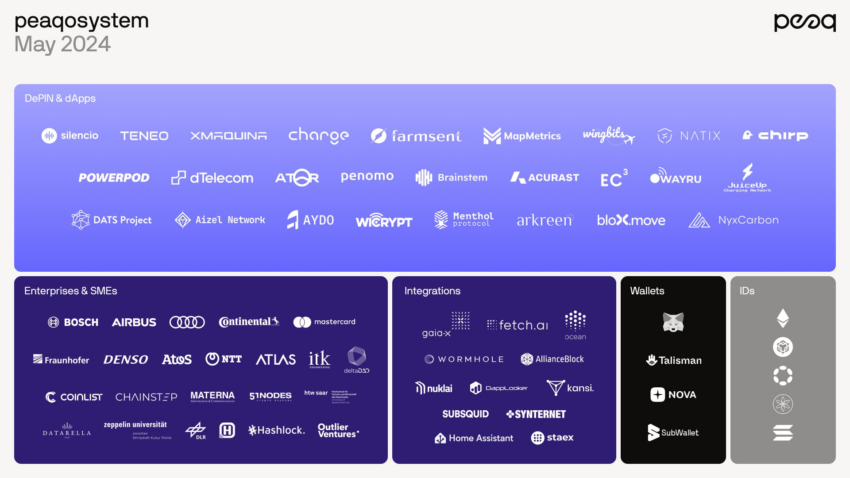Minima’s blockchain integration addresses long-standing industry challenges by ensuring data integrity and security. This development is a huge step towards optimizing performance and maintaining compliance within the competitive motorsport environment.
SEALCOIN Launches Blockchain-Based IoT Platform with Hashgraph Support
SEALSQ Corp has launched SEALCOIN AG, a new entity focused on DePIN. Backed by strategic investment from The Hashgraph Association, SEALCOIN meets the growing need for efficient, trustworthy transactions in the IoT sector, especially in Transactional IoT (t-IoT).
Using Hedera’s decentralized ledger, smart contract service, token service, and consensus service, SEALCOIN creates a DePin infrastructure. This allows IoT devices to autonomously handle transactions without human intervention or unnecessary middlemen, improving IoT interactions’ efficiency, security, and reliability.
“We at The Hashgraph Association believe that DePIN solutions are positioned to revolutionize the connected economy, bringing trust, efficiency, and innovation to enterprises and users on Hedera’s distributedledger technology. We are excited to be supporting SEALCOIN AG in bringing DEPIN Transactional IoT forward in a scalable, secure, and transparent manner,” stated Kamal Youssefi, President of The Hashgraph Association.
Read more: Top 12 Crypto Companies to Watch in 2024
The SEALCOIN utility token facilitates service-for-payment exchanges, ensuring efficient, reliable data management. This collaboration highlights the potential of blockchain in amplifying IoT transactions and setting new standards for security and efficiency.
Particle Network Joined Peaq Ecosystem
Particle Network has joined the peaq ecosystem, integrating its Wallet Abstraction solution. This will help the community grow beyond Web3 natives, bringing peaq and its DePIN projects to millions of potential users worldwide.
Particle’s Wallet Abstraction is a modular tool designed to help Web3 developers easily onboard Web2 users to decentralized applications (dApps). It allows users to log into dApps using existing email or social media accounts and enables developers to embed non-custodial wallets directly into their dApps interfaces.
“With our Smart Wallet, joining a DePIN on peaq becomes as trivial as logging into a regular Web2 app. However, this is only the beginning. As we further deploy chain abstraction infrastructure, any user from any chain will be able to access DePIN dApps, allowing for truly borderless adoption,” said Pengyu Wang, CEO of Particle Network.
Read more: Top 9 Web3 Projects That Are Revolutionizing the Industry

These developments indicate a promising future for DePIN, with more prominent players entering the sector and new solutions emerging. While DePIN is still in its early stages and has some flaws, it allows for the exchange of tokens between synthetic and real-world assets. This supports traditional infrastructure by providing last-mile coverage in areas where conventional models are not economically feasible.
